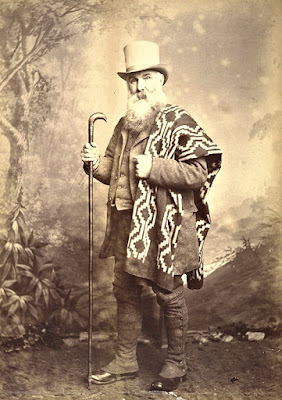SDS developed from the Student League for Industrial Democracy (SLID), the youth branch of a socialist educational organization known as the League for Industrial Democracy (LID). LID descended from the Intercollegiate Socialist Society, started in 1905. Early in 1960, the SLID changed its name into Students for a Democratic Society (SDS). The Port Huron Statement was adopted at the organization's first convention in 1962 based on an earlier draft by staff member Tom Hayden.
The Port Huron Statement[4] decried what it described as "disturbing paradoxes": that the world's "wealthiest and strongest country" should "tolerate anarchy as a major principle of international conduct"; that it should allow "the declaration 'all men are created equal...'" to ring "hollow before the facts of Negro life"; that, even as technology creates "new forms of social organization", it should continue to impose "meaningless work and idleness"; and with two-thirds of mankind undernourished that its "upper classes" should "revel amidst superfluous abundance".
In searching for "the spark and engine of change" the authors disclaimed any "formulas" or "closed theories." Instead, "matured" by "the horrors of a century" in which "to be idealistic is to be considered apocalyptic", Students for a Democratic Society would seek a "new left . . . committed to deliberativeness, honesty [and] reflection."
The Statement proposed the university, with its "accessibility to knowledge" and an "internal openness", as a "base" from which students would "look outwards to the less exotic but more lasting struggles for justice." "The bridge to political power" would be "built through genuine cooperation, locally, nationally, and internationally, between a new left of young people and an awakening community of allies." It was to "stimulating this kind of social movement, this kind of vision and program in campus and community across the country" that the SDS were committed.
#1 Supporters of the Socialist Party of America (SPA) were heartened by the results of the Presidential election of 1904, which saw the party's candidate, Eugene V. Debs, win approximately 400,000 votes.[1] One supporter in particular, novelist Upton Sinclair, was motivated to help advance the socialist idea among the political leaders of tomorrow by establishing a new organization targeted at college students.[1] Sinclair made contact with a number of leading public intellectuals of the day, gaining formal endorsements for a new national college socialist organization from a number of important figures, including novelist Jack London, millionaire financier James Graham Phelps Stokes, socialist republican William English Walling, magazine publisher B. O. Flower, attorney Clarence Darrow, writer Charlotte Perkins Gilman, publicist Leonard D. Abbott, abolitionist hero Thomas Wentworth Higginson,[2] and Harry W. Laidler.[1]
Over the signatures of these and other prominent public figures, in the Spring of 1905 Sinclair issued a call for the formation of a new organization, a group to be called the Intercollegiate Socialist Society
#2 In its early years, the LID addressed societal problems such as poverty, child labor, work conditions, and poor housing conditions, under the leadership of notable activists: Robert Morss Lovett, Charles P. Steinmetz, Florence Kelley, and Stuart Chase.[6] It became the base for leftwing intellectuals, otherwise known as Muckrakers. During the Great Depression of the 1930s, the LID organized radio stations and broadcasts centered around the New Deal. Throughout its history, the LID has called itself a proponent of the labor movement. The group saw this movement as a progressive force that is misunderstood by intellectuals.[citation needed] The goal of this is to break down these perceived boundaries and to promote "education for increasing democracy in our economic, political, and cultural life"[7]
Today's affiliates are mostly anti-communists and focus their energy on democracy building in places such as Eastern Europe, Africa, and Central America, while paying very little attention to its domestic program.[8]


Comments
Post a Comment